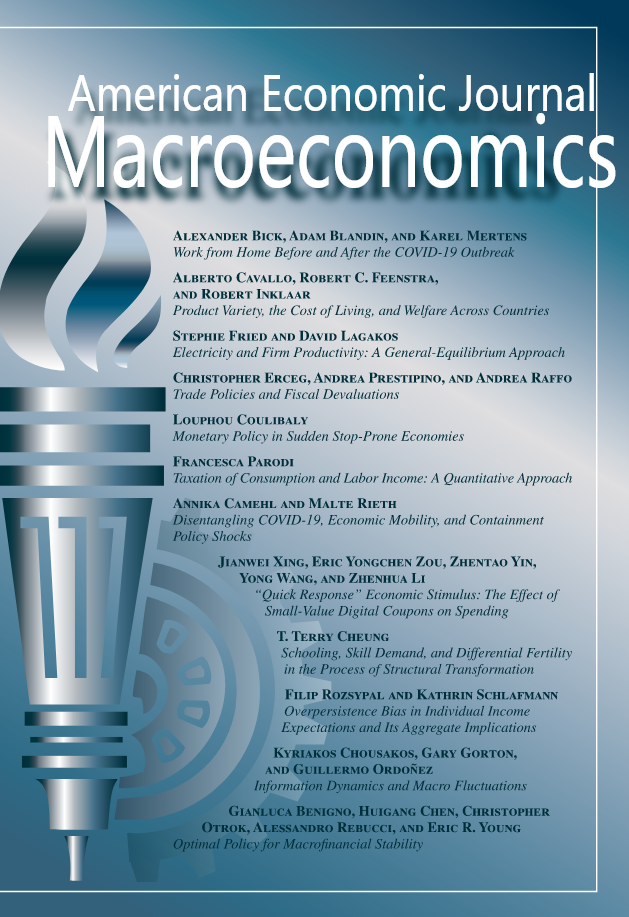通膨预期调查
IF 5.7
1区 经济学
Q1 ECONOMICS
引用次数: 1
摘要
当调查依赖于重复参与者时,这增加了调查参与可能会影响未来反应的可能性,也许是通过在两次调查之间促进信息获取。我们表明,这些“通过调查学习”的效应对于家庭通胀预期是很大的。重复调查的参与者通常有较低的通胀预期和不确定性,特别是如果他们最初的不确定性很高。因此,重复参与者可能更了解或关注通货膨胀。这具有重要意义:例如,新参与者的通货膨胀预期更容易受到油价的影响,对新参与者的跨期替代弹性的估计较低。(凝胶c83, d84, e31, e37, e58)本文章由计算机程序翻译,如有差异,请以英文原文为准。
Learning-through-Survey in Inflation Expectations
When surveys rely on repeat participants, this raises the possibility that survey participation may affect future responses, perhaps by prompting information acquisition between survey waves. We show that these “learning-through-survey” effects are large for household inflation expectations. Repeat survey participants generally have lower inflation expectations and uncertainty, particularly if their initial uncertainty was high. Consequently, repeat participants may be more informed about or attentive to inflation. This has important implications: for example, inflation expectations of new participants are more influenced by oil prices, and estimates of the elasticity of intertemporal substitution are lower for new participants. (JEL C83, D84, E31, E37, E58)
求助全文
通过发布文献求助,成功后即可免费获取论文全文。
去求助
来源期刊

American Economic Journal-Macroeconomics
ECONOMICS-
CiteScore
8.20
自引率
1.70%
发文量
58
期刊介绍:
American Economic Journal: Macroeconomics focuses on studies of aggregate fluctuations and growth, and the role of policy in that context. Such studies often borrow from and interact with research in other fields, such as monetary theory, industrial organization, finance, labor economics, political economy, public finance, international economics, and development economics. To the extent that they make a contribution to macroeconomics, papers in these fields are also welcome.
 求助内容:
求助内容: 应助结果提醒方式:
应助结果提醒方式:


